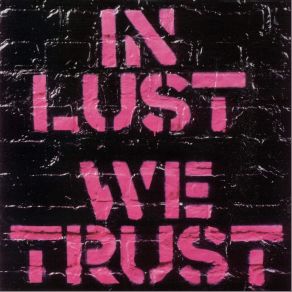In Lust We Trust
Download links and information about In Lust We Trust by The Ark. This album was released in 2002 and it belongs to Rock, Hard Rock, Metal, Heavy Metal, Pop genres. It contains 11 tracks with total duration of 43:59 minutes.

|
|
|---|---|
| Artist: | The Ark |
| Release date: | 2002 |
| Genre: | Rock, Hard Rock, Metal, Heavy Metal, Pop |
| Tracks: | 11 |
| Duration: | 43:59 |
| Buy it NOW at: | |
| Buy on iTunes $9.99 | |
| Buy on Amazon $9.49 | |
Tracks
[Edit]| No. | Title | Length |
|---|---|---|
| 1. | Beauty Is the Beast | 3:37 |
| 2. | Father of a Son | 3:22 |
| 3. | Tell Me This Night Is Over | 5:15 |
| 4. | Calleth You, Cometh I | 4:32 |
| 5. | A Virgin Like You | 4:30 |
| 6. | Interlude | 1:06 |
| 7. | Tired of Being an Object? | 2:43 |
| 8. | Disease | 3:16 |
| 9. | Vendelay | 3:21 |
| 10. | 2000 Light-Years of Darkness | 8:08 |
| 11. | The Most Radical Thing To Do | 4:09 |
Details
[Edit]The Ark's second album — another sweeping success in their native Sweden — is of a piece with the rousing, ornate, glam-inspired pop/rock of their debut, with an equal and explicit emphasis on both the "pop" and the "rock" sides of that equation. Song for song, it's a couple notches tighter than its predecessor, with fewer ballads (not that there's anything wrong with ballads), an even higher quotient of instantly indelible melodic hooks (even on buried non-singles like "2000 Lightyears of Darkness" and the curiously Asian-sounding "Vendelay"), and nothing remotely close to a dull moment. Lyrically, In Lust We Trust moves beyond We Are the Ark's somewhat introspective focus on self-exploration and assertiveness for a more outward-looking but no less personal approach that effectively amounts to — as the title suggests — a political manifesto on sexual and romantic themes. As with Canada's similarly oriented Hidden Cameras (it's no coincidence both groups were featured on the soundtrack to John Cameron Mitchell's polysexual, controversy mongering Shortbus), the sexual-personal is the socio-political for these guys, and even if they're not quite as graphic about it, they're certainly just as enthusiastic. Sometimes it's topical: "Father of a Son" is doubtless the highest-charting — and most ebulliently self-vindicating — song ever written about homosexual adoption rights, and if the gorgeous, unabashedly romantic "Disease" is truly not about AIDS (as Ola Salo, the band's openly bisexual lead singer and songwriter, has claimed), it sure sounds like it. More conceptually, "Beauty Is the Beast" takes on the idealization of beauty (turning James Brown's "It's a Man's World" on its head in the process), while the provocative "Tired of Being an Object?" calls into question assumptions about institutionalized sexism in popular culture, suggesting that "getting f****d can be amusing" and asserting "everybody's right to sometimes feel irresistible." Ultimately, the album's most powerful moments may be those that deal with relationships and love (or the lack thereof) in rather more generic, familiar ways — the haunting "Tell Me This Night Is Over" with its readily relatable rumination on loneliness; the endearingly giddy "Calleth You, Cometh I" and its nostalgia-ridden tale of abiding, deathless lust (OK, call it love.) But as the spirited summing-up of the album's concluding track reminds us, even these commonplace romantic pursuits can take on a political significance: "The Most Radical Thing to Do," Salo croons, "is to love someone who loves you." If that's a sentiment you can get behind, and as long as you're amenable to hyper-meticulous, hyper-melodic post-ironic pomp-pop of a somewhat histrionic persuasion, it would be practically treasonous not to fall for this album. ~ K. Ross Hoffman, Rovi